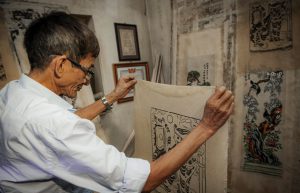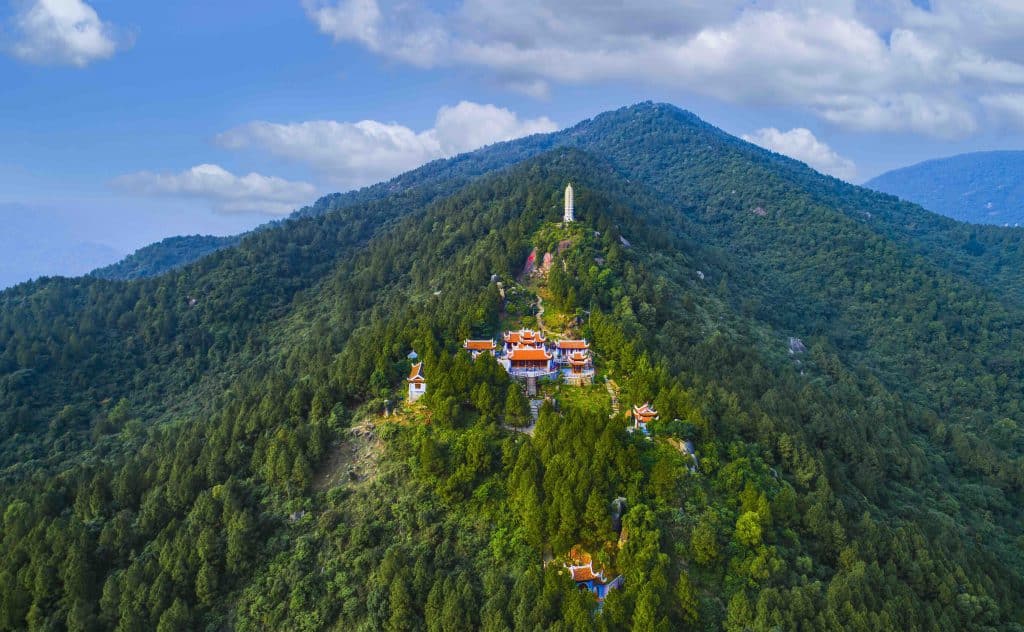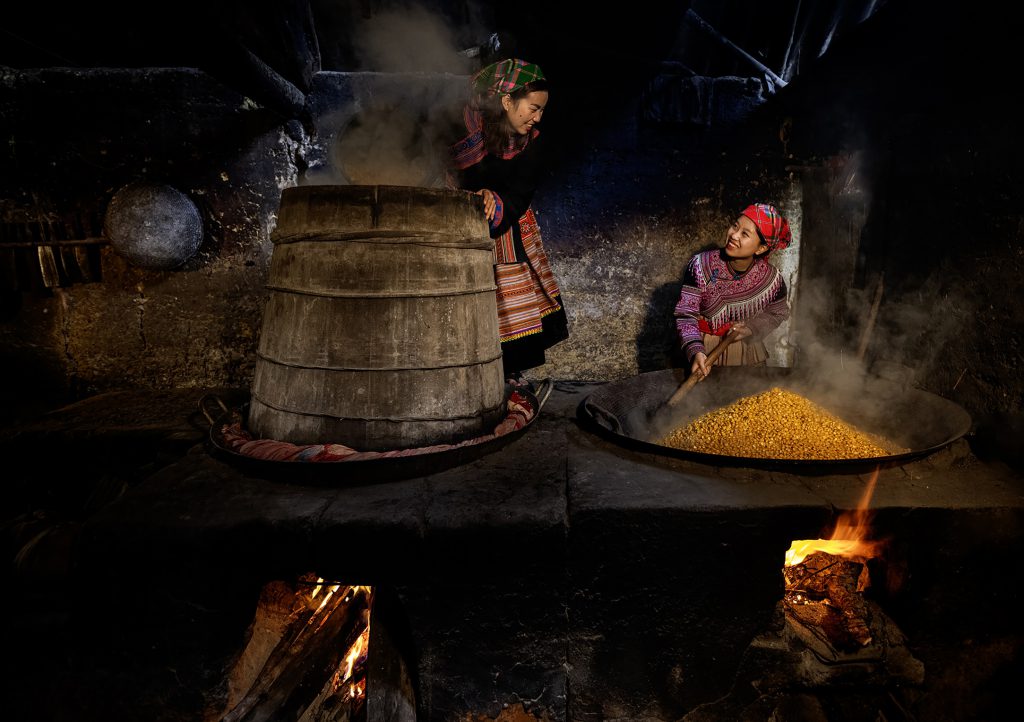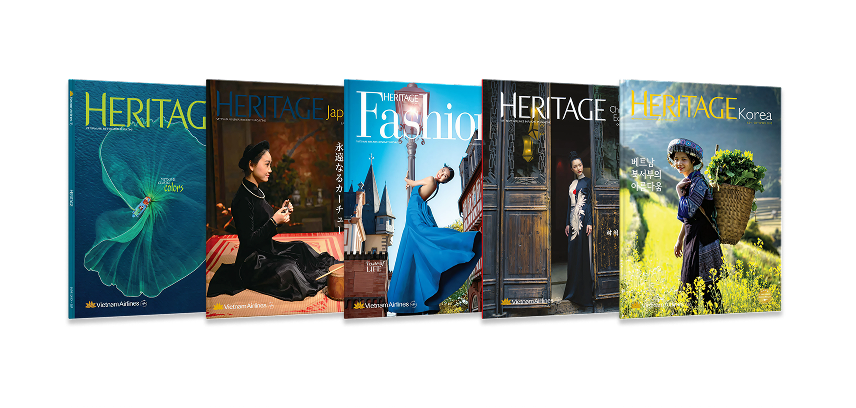Story: Le Anh
Photos: Thanh The Vinh
Tam Duong is a highland district in the northeast of Lai Chau province, home to various Dao ethnic subgroups such as the Dao Khau, Red Dao, and Dao Dau Bang. The Dao people are known for their unique rituals that continue to be practiced in modern life. Among these, the Tu Cai ceremony of Dao Dau Bang people in Ho Thau commune stands out. In Dao Nom script, “Tu” means “to report”, and “Cai” means “to name”. Thus, the Tu Cai ceremony is designed to report a son’s spiritual name within the family lineage to the spirits and ancestors.
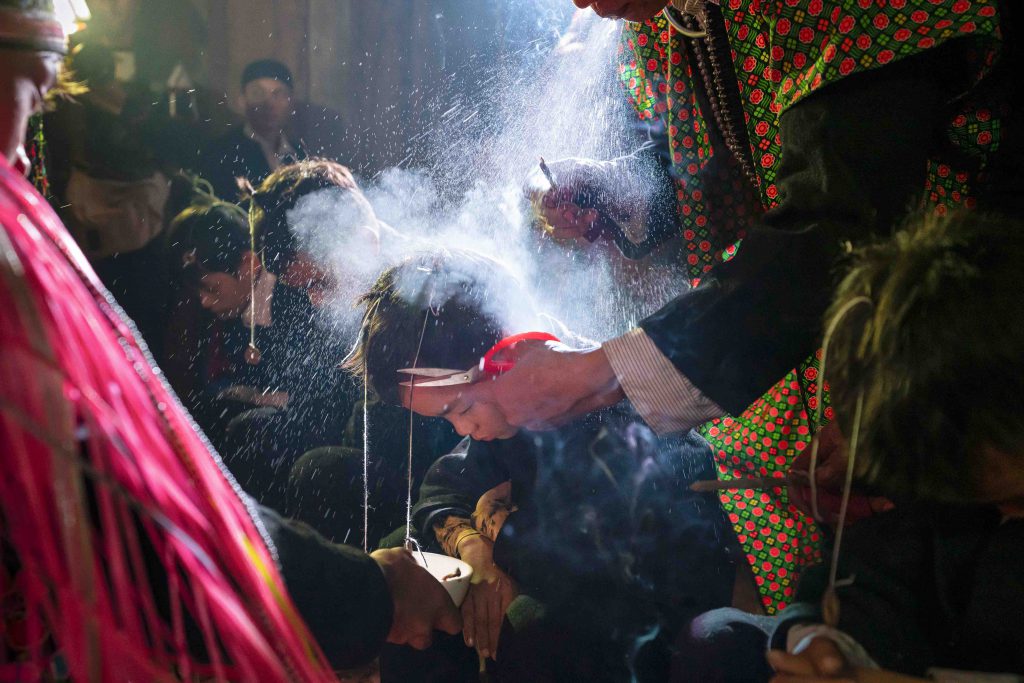
Only after undergoing this ritual is a young Dao man recognized as having reached adulthood, with the moral character and wisdom needed to undertake significant responsibilities within the family and community. Importantly, from a spiritual perspective, Dao people believe that a man who has undergone the Tu Cai ceremony will be reunited with his ancestors in the afterlife. Once a spiritual name is given, Dao Dau Bang people only use it in traditional rituals. This sacred name is recorded in the family genealogy for descendants to use when worshipping their ancestors after the person’s passing.
The Tu Cai ceremony is typically held during the agricultural off-season at the end of the year and lasts about three days, depending on the family’s finances. About a week before the ceremony, the host family meticulously prepares offerings for the ritual. Shamans and initiates—typically boys and young men aged 9 to 17—perform various rituals to demonstrate their capabilities to the spirits and ancestors during the Tu Cai ceremony. Each ritual carries a meaning. For instance, stamping a passport (or Cap Sac ritual) and lighting a lamp symbolize the body’s purification before receiving a soul. The ritual of tying a coin to the applicant’s head and cutting the string reenacts the cutting of the umbilical cord at birth. Beyond spiritual rituals, the shaman teaches the youngster to perform worship ceremonies, and traditional dances, and play various ethnic musical instruments. The shaman imparts wisdom and moral teachings to prepare the youth for his role as a pillar of his family and community.

the community
The most significant and unique ritual in the Tu Cai ceremony is the “Roi Dai” ritual (falling from the platform), performed outdoors. The young man kneels on a high platform and falls backward in a fetal position, reminiscent of a baby in the womb. Below, a hammock is stretched out, held by strong men ready to catch him. As soon as the falling man lands, he is tightly wrapped in a blanket. The shaman then unveils the man, allowing him to emerge. At this point, the initiate has completed all the rituals of the Tu Cai ceremony and is officially recognized by the community as an adult.
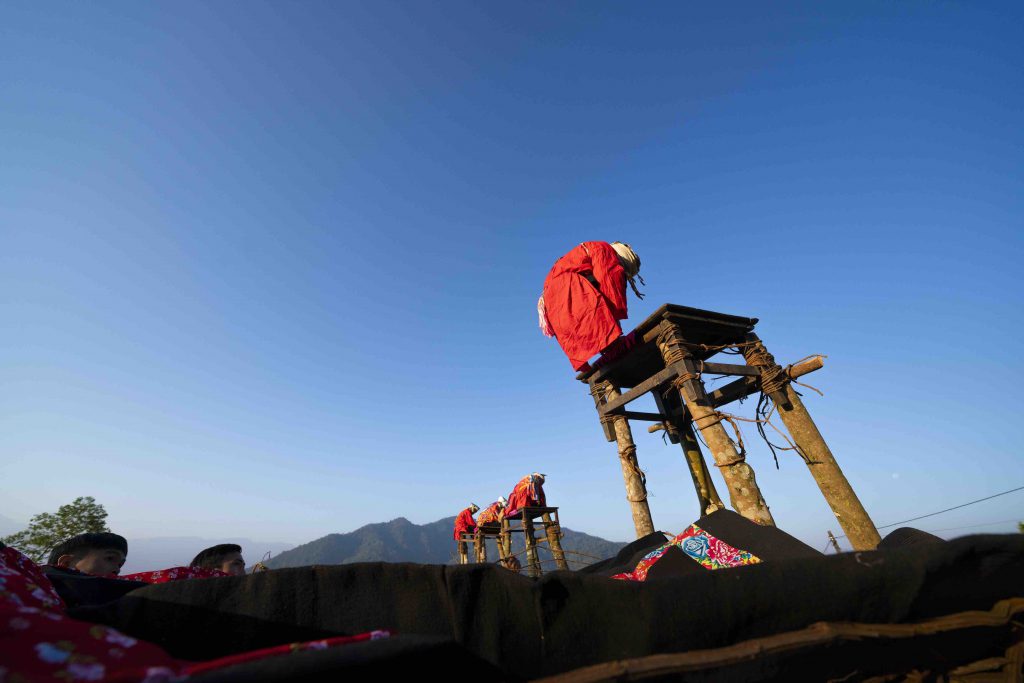
According to the Dao Dau Bang community, as well as being significant for the individual, the Tu Cai ceremony ensures favorable weather, healthy livestock, and bountiful harvests for the community, and brings happiness and peace to the initiate’s family.
With its profound humanitarian values, the Tu Cai ceremony is being preserved within the living space of the Dao Dau Bang people. In November 2023, authorities in Tam Duong district and Ho Thau commune launched the Club for Preserving the Tu Cai Festival of the Dao Ethnic Group in Ho Thau commune, with 20 members from eight local villages.



